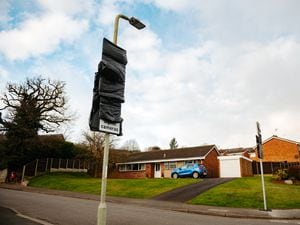Concerns raised by West Midland teachers over new compulsory sex education lessons
Almost half of teachers in the West Midlands said they do not feel confident about teaching the new compulsory relationships and sex education lessons in schools, a new survey has revealed.

Children’s charity the NSPCC and the National Education Union (NEU) are now calling on the Government to urgently step up its support and training for schools and teachers to help them deliver the vital lessons.
The finding, from a joint NEU and NSPCC survey of 2,175 school leaders and teachers nationally, comes just 16 months before lessons are due to be rolled out in September 2020 as a mandatory part of the curriculum in England.
This new curriculum has the potential to ensure all children learn how to develop positive relationships, recognise abusive or controlling behaviour and know where to seek help.
Yet over a quarter of teachers said that their school would not be ready to deliver it.
Teachers in the survey backed the importance of the new lessons, with three quarters of headteachers across England agreeing that the roll-out was crucial for creating a culture of safeguarding in the school.
But competing workloads, the cost of training and difficulty in finding high quality training were identified by teachers as the biggest barriers.
Around three quarters of teachers said face-to-face training would boost their confidence to deliver high quality RSE, and just under three quarters said that more funding for staff training would ensure schools were ready.
Specific
In Shropshire and the West Midlands, 47 per cent of teachers said they do not feel confident about teaching the new compulsory relationships and sex education lessons in schools.
The nationwide survey also highlighted a need to help teachers with lessons on specific subjects in secondary schools.
Three out of five teachers said they do not feel confident about teaching the impact of pornography.
Just over half were not confident about teaching lessons on female genital mutilation and only 10 per cent of respondents felt ‘very confident’ about teaching either of these topics.
However, the majority of primary school teachers nationally said they were confident about teaching the concept of boundaries and how stereotypes can cause harm, and secondary school teachers felt confident delivering lessons about sexual consent, sexting and grooming.
Almudena Lara, NSPCC head of policy, said: “We know teachers up and down the country are doing a fantastic job but delivering RSE without proper training is like asking a German teacher to deliver Mandarin lessons.
“For the first time ever all schools will be obliged to discuss key issues of consent and coercion, enabling more children to say no to things that make them feel uncomfortable.
“It is clear teachers need better support, which is where the Government must do more or risk undermining the new curriculum.”
Kevin Courtney, NEU joint general secretary, said: “The introduction of statutory RSE is a vital opportunity to broaden the curriculum and connect education to the realities of children’s lives and the questions they are struggling with.
"Children need an RSE that is inclusive, empowering and protective, delivered by confident and equipped teachers.
"The DfE must show real leadership in removing the barriers that stand in schools’ way. All schools must have access to fully funded face-to-face training to ensure high quality provision by 2020.”





